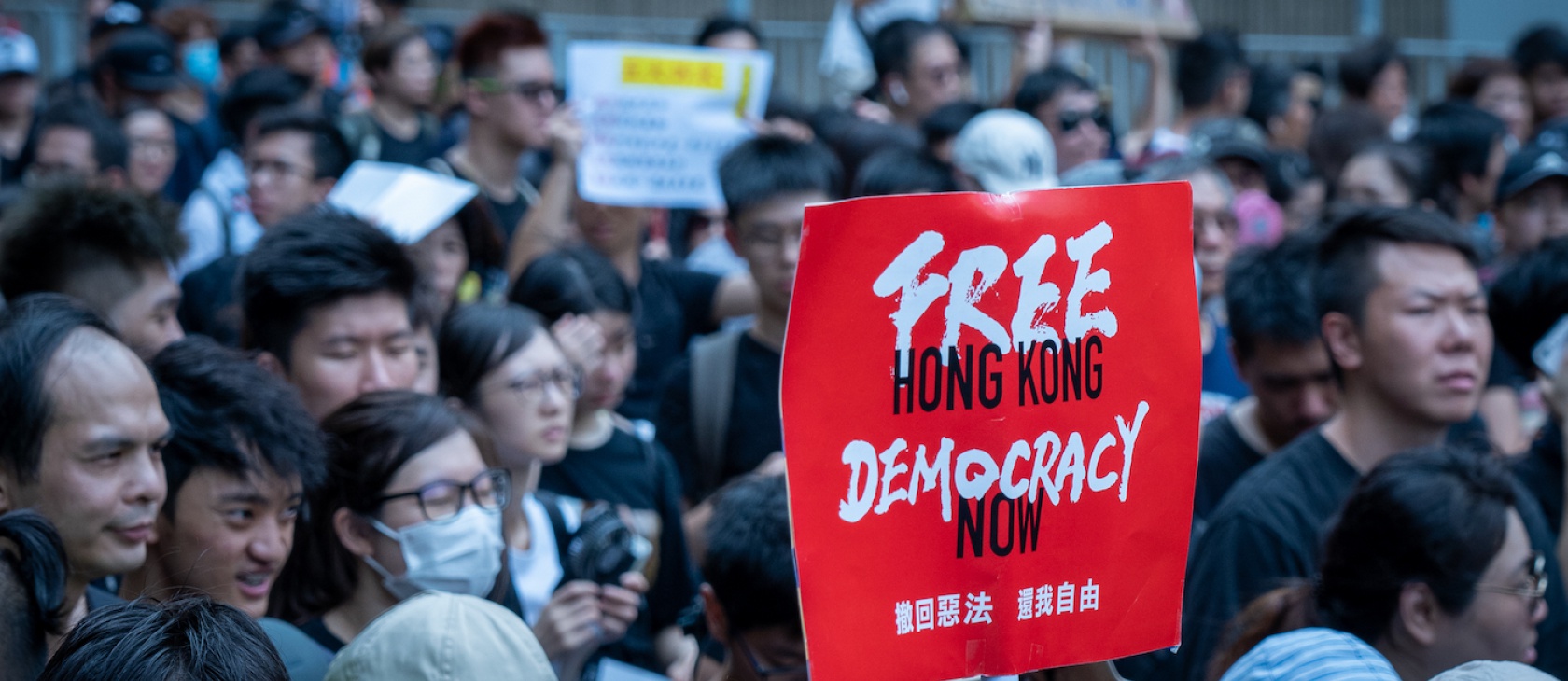The citizens of Hong Kong expanded their democratic revolution to the ballot box on Sunday, as pro-democracy parties won control of virtually every local government from pro-Beijing functionaries. Yesterday’s district council elections – the largest in history, with an estimated 71 percent of all registered voters (or 2.94 million of 4.13 million) participating – proved voters’ overwhelming support for the traditional rights enjoyed by the former British protectorate.
The South China Morning Post described the landslide election as a “tsunami of disaffection.”
In 2015, pro-Beijing parties such as thee Democratic Alliance for the Betterment and Progress of Hong Kong (DAB) controlled all 18 district councils. This year, a coalition of pro-democracy parties won 17 of them.
Final tallies show pro-democracy parties control 390 of 452 district council seats, or 86 percent of the elected offices.
Their triumph is all the more consequential, as The Washington Post reports pro-Beijing parties “tend to be better funded and organized than pro-democracy groups, with solid links with the business elite and political establishment.” Voters displaced even the system’s most entrenched members, turning DAB vice chairman Holden Chow out of office in favor of a 25-year-old democrat.
District councils tend to local affairs and do not write national policies. But since, the special administrative region’s chief executive and half its Legislative Assembly are appointed, advocates of liberty believed winning the only fully democratic elections would warn Beijing to stop rolling back the “one country, two systems” policy.
Protests broke out in June after Beijing-appointed Chief Executive of Hong Kong Carrie Lam introduced a bill allowing Hong Kong citizens to be extradited and tried in mainland China’s courts. Police have peppered the demonstrators with rubber bullets, tear gas, and eventually shot a protester with live ammunition at point-blank range.
“We are deeply troubled by footage showing excessive force and brutality by Hong Kong police against protesters, many of whom are reported to be juveniles,” said Michael J. Abramowitz, president of Freedom House, which rates Hong Kong “partly free.”
“It is critically important that this situation be deescalated immediately,” he said.
For one day, peace returned to the streets as protesters moved their demonstrations to the voting booth. The democrats’ victory was powered by every segment of society. An estimated 386,000 young people who registered to vote this year. At the same time, a 91-year-old woman in Sha Tin came out to vote for the first time in 20 years. And a 39-year-old expatriate flew from the UK to vote in the Wan Chai elections.
Lam obliquely acknowledged her role in the outcome. “There are many analyses and interpretations which say the results reflect the public’s dissatisfaction with the current state of things and the deep-seated problems in society,” she said, before vowing to “seriously reflect” on the returns. Others were more forthcoming. Alice Mak of the Federation of Trade Unions blamed “the government’s poor governance” for her loss.
Pro-democracy protesters have cited the election results to press for their five demands. Leaders insist that the Lam administration completely withdraw the extradition bill, stop referring to protesters as rioters, release all arrested demonstrators, investigate police officers’ behavior toward protesters, and implement universal suffrage. “Five demands, not one less,” said one of the pro-democracy victors, Roy Kwong Chun-Yu.
Lord Acton would have seen true legislative authority as resting with Hong Kong’s citizens. “Authority that does not exist for Liberty is not authority but force,” he wrote. “[A]rbitrary government is the violation of divine right.”
If China does not respect its citizens God-given rights, it may want to regard its self-interest in preserving Hong Kong’s vibrant, free-market economy. Hong Kong’s share of the Chinese economy has shrunken from 18 percent in 1997 to 2.7 percent today. Chinese officials say that Shenzhen has surpassed Hong Kong’s economy in absolute terms. But it remains a pivotal hub for exports, as well as a way for China to increase the use of its currency, the yuan, which it hopes will become a rival for the dollar.
Hong Kong experienced its first recession in a decade during the third quarter. The Chinese press reported that a business owner estimated his sales to tourists have declined 80 percent. Although the People’s Bank of China cut interest rates last Monday, all signs indicating things will worsen in the fourth quarter. Bank of America Merill Lynch forecast on Friday that Hong Kong seemed to be on the edge of a “prolonged recession.”
China’s crackdown threatens its own economic well-being.
“While Hong Kong remains the most economically free jurisdiction in the world, interference from China – including the violent crackdown of pro-democracy protests – severely threatens Hong Kong’s rule of law, which helps ensure equal freedom for all, and endangers Hong Kong’s top position,” said Fred McMahon, research chair at the Fraser Institute, which is based in Canada.
Hong Kong’s economic prosperity and political freedom developed hand-in-hand and find themselves facing the same threat. If Hong Kong voters succeed in holding back this assault on their liberties, they will prove Lord Acton’s belief that “there is a reserve of latent power in the masses which, if it is called into play, the minority can seldom resist.”














